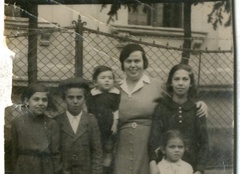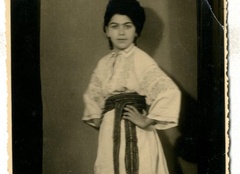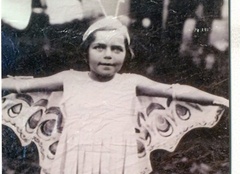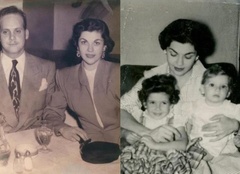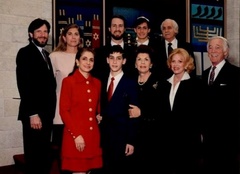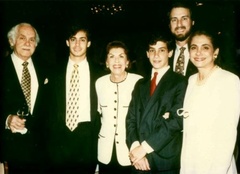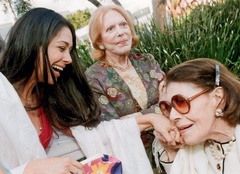Born: Renée Rosenberg
Sighet, Romania
March 6, 1927
Died:
July 21, 2013
Renée Danziger had a happy childhood in Sighet, Romania, “a very nice town with a plaza and beautiful flowers.” Renée’s father, a business owner, supported the family in comfort and her mother, a well-read and refined woman, saw to the children’s cultural and academic education.
In 1940, Romania’s King Carol II was deposed in a bloodless coup. In the economic upheaval that followed, Renée’s father lost his business and left for America. Under the new regime, Jews were singled out for abuse and persecution. Romania fell firmly into Nazi Germany’s orbit, joining the Axis powers in the invasion of the Soviet Union in June 1941. For a time, Renée and her family were interned in a cramped and filthy ghetto. She remembered entire families crowding into one room and children crying from hunger.
At the beginning of 1944, Renée’s family was crushed into an airless boxcar and sent to Auschwitz-Birkenau. Images of the camp haunted Renée. She remembered the grip of the SS officer who tore her from her mother, the sound of her thick braids falling to the ground as she was shorn on arrival and the smell from the crematoria. “There’s one thing I will never be able to get out of my head,” she remarked. The companionship of her friends and her cousin, Yolan Itu, sustained Renée and music comforted her. Sometimes she and the other girls hummed or sang together to blunt their suffering.
Late in 1944, Renée was sent on a forced march to Bergen-Belsen. By the time she was liberated in April 1945, she was comatose and hovering near death. Sent to Sweden to recuperate, Renée “slowly learned to be human again” under the gentle ministrations of the Swedish doctors and nurses. When she regained her strength, she enjoyed going to the opera. Much as music had kept her going in the camps, now it helped her to recover. To her joy, while she was in Sweden Renée learned that her sister Elsa had survived. Her mother and her other three siblings, however, had all perished.
With her father’s sponsorship, Renée came to the United States in April 1946. She struggled to support herself, learn English and shake the stigma of being a refugee, but hard work took a toll; not yet fully recovered from the tuberculosis she had contracted in camp, she collapsed and spent many months recovering once again. When she was well, she settled in Houston to be near relatives. There she met her future husband Benjamin Danziger. They had two daughters, Gail and Leslie, whom Renée unabashedly called “the two most wonderful children any woman has ever given birth to.” In Houston, Renée was active resettling Jewish refugees from all over the world. She was also a tremendously successful fundraiser for the Houston Grand Opera. In 1996, she was honored with the Masterson Award for her longtime support of the opera. “I feel I owe a big debt to music,” she said, explaining her passion and dedication.
Parents:
Philip Rosenberg, survived
Gisela Kein Rosenberg, d. Auschwitz, 1944
Siblings:
Elsa, survived
Hershel, d. Budapest
Mimike, d. Auschwitz, 1944
Lilike, d. Auschwitz, 1944
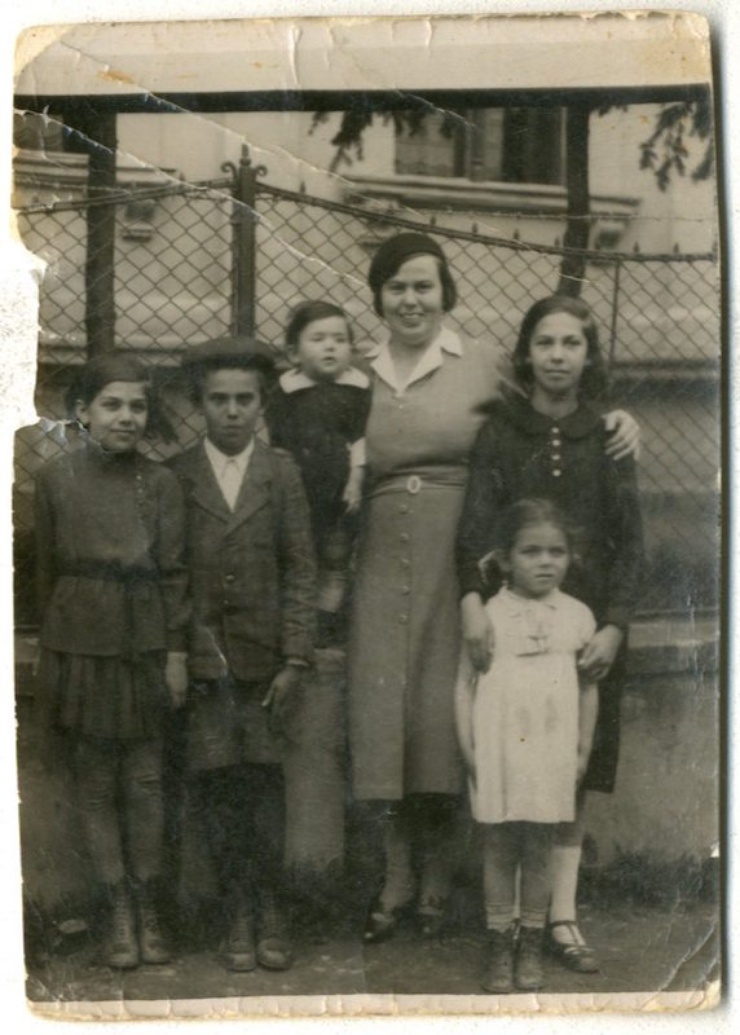 Renée Danziger (left) with her mother and four siblings. Photo courtesy of Gail Klein
Renée Danziger (left) with her mother and four siblings. Photo courtesy of Gail Klein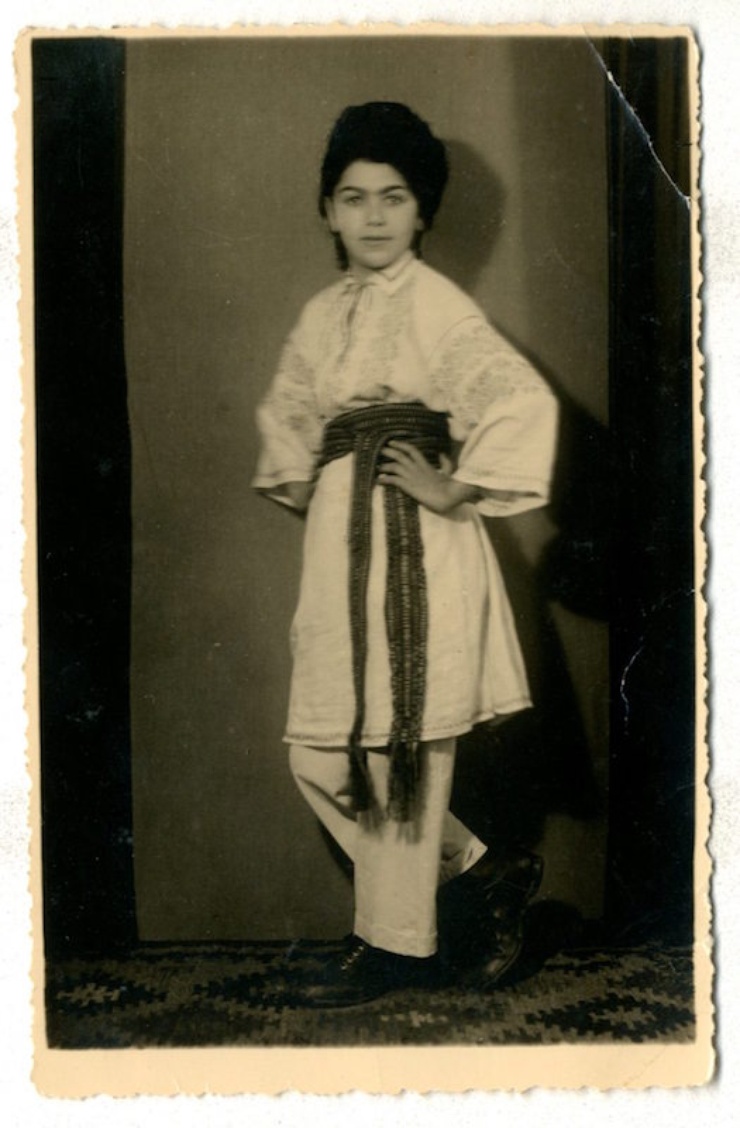 Danziger posed in traditional costume. Photo courtesy of Gail Klein
Danziger posed in traditional costume. Photo courtesy of Gail Klein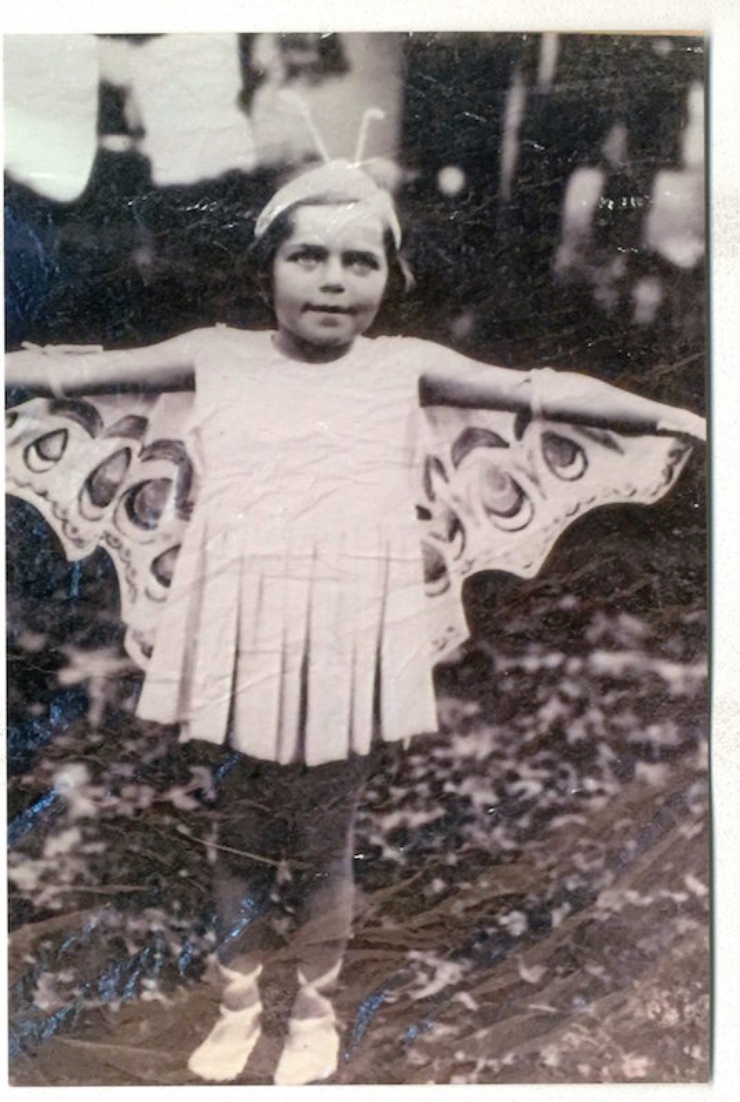 Renée Danziger's younger sister Lili later perished at Auschwitz. Photo courtesy of Gail Klein
Renée Danziger's younger sister Lili later perished at Auschwitz. Photo courtesy of Gail Klein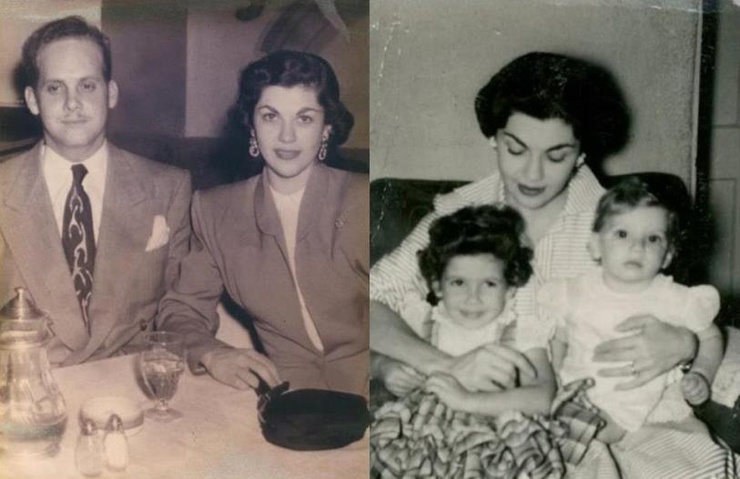 Left: Renée Danziger with her husband Benjamin, 1950s; Right: Renée with her daughters Gail and Leslie, ca. 1954. Photos courtesy of Gail Klein
Left: Renée Danziger with her husband Benjamin, 1950s; Right: Renée with her daughters Gail and Leslie, ca. 1954. Photos courtesy of Gail Klein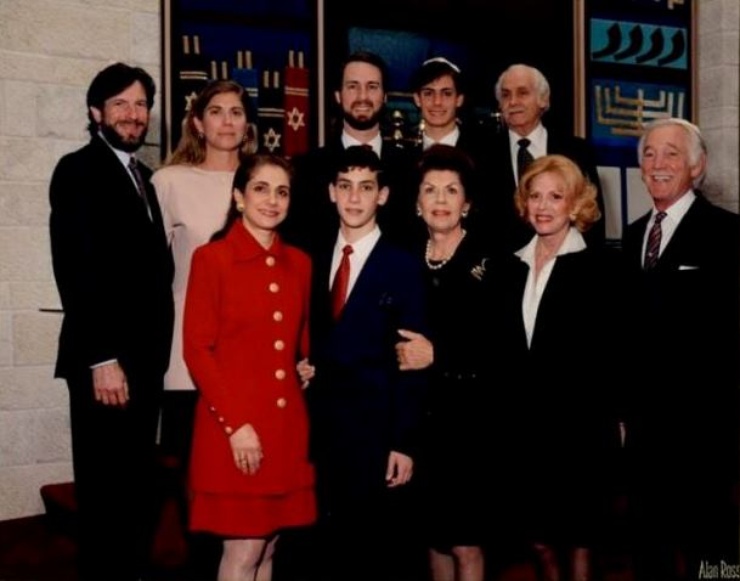 Renée Danziger (center) at her grandson's Bar Mitzvah in Houston, March 11, 1995. Also pictured is Renée's sister Elsa (front row, second from right). Photo courtesy of Gail Klein
Renée Danziger (center) at her grandson's Bar Mitzvah in Houston, March 11, 1995. Also pictured is Renée's sister Elsa (front row, second from right). Photo courtesy of Gail Klein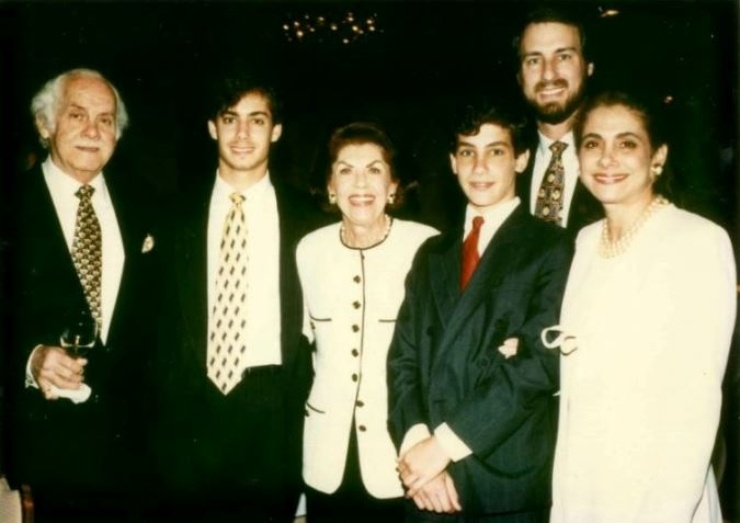 In 1995 Danziger (center) received the prestigious Masterson Award for her distinguished service to the Houston Grand Opera. Photo courtesy of Gail Klein
In 1995 Danziger (center) received the prestigious Masterson Award for her distinguished service to the Houston Grand Opera. Photo courtesy of Gail Klein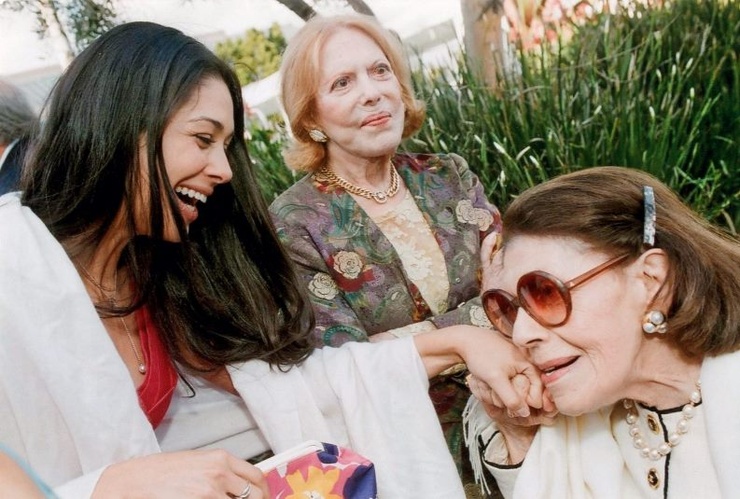 Renée Danziger (right) with her sister Elsa (center) and new granddaughter-in-law, ca. 2010. Photo courtesy of Gail Klein
Renée Danziger (right) with her sister Elsa (center) and new granddaughter-in-law, ca. 2010. Photo courtesy of Gail Klein